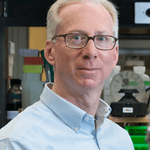Event Recording:
Can we do better than small blue pills with overly broad effects in the brain?
Just as people and populations are diverse - motivating ideas of personalised medicine, nerve cells - or neurons - of the brain are immensely diverse in their types and “individual” circuits that become diseased or damaged in humans. This lecture considers newly accessible molecular routes to more specific future therapies.
The long-term goals of the research to be discussed in this Stanley Ho Memorial Lecture are to understand, at a “subcellular” molecular level, controls over the initial growth - the “development" - and diversity of cerebral cortex function-specific circuitry, and diversity of mature function. The work aims to identify causes, mechanisms, and thus potential “circuit-customised” therapeutic approaches to developmental, neuropsychiatric and degenerative disease, and to elucidate and potentially overcome blocks to brain and spinal cord regeneration in disorders like spinal cord injury. The specificity, modification, and function of quite diverse brain circuitry underlies how the brain-nervous system senses, integrates, moves the body, thinks, functions with precision, malfunctions with specificity in disease, degenerates with circuit specificity, might be regenerated, and/or might be better modeled in the laboratory. However, many relevant aspects of this neuronal circuit diversity and distinctness have been inaccessible in multiple core aspects until quite recently. Understanding what actually implements and maintains circuit specificity is a key issue regarding childhood developmental nervous system abnormalities and disease, proper function vs. dysfunction in neuropsychiatric disorders, selective neuron type vulnerability of degeneration (e.g. in motor neuron disease (MND-ALS), Huntington’s, Parkinson’s diseases), regeneration (or typical lack thereof) for spinal cord injury, and investigations of disease using human pluripotent stem cell (hiPS)-derived neurons.
Professor Jeffrey D. Macklis' talk will consider possibilities of taking the idea of “personalised medicine”- tailored to an individual based on individual information - in a complementary direction– tailoring therapies to specific diseased or damaged brain circuitry.
This is the Dr Stanley Ho Memorial Lecture organised by the Oxford Martin School, Oxford Martin Programme on 3D Printing for Brain Repair and the Centre for Personalised Medicine

Professor Jeffrey D. Macklis
Oxford Martin Visiting Fellow, Oxford Martin Programme on 3D Printing for Brain Repair
Jeffrey D. Macklis is the Max and Anne Wien Professor of Life Sciences and Professor of Stem Cell and Regenerative Biology in the Department of Stem Cell and Regenerative Biology, and Center for Brain Science, Harvard University, and Professor of Neurology [Neuroscience] at Harvard Medical School (HMS). He was founding Program Head, Neuroscience, Harvard Stem Cell Institute. He is Director of Graduate Studies in the Department of Stem Cell and Regenerative Biology, and (co-)Director of the Developmental and Regenerative Biology Ph.D. Program at Harvard University. He is an M.I.T. affiliate faculty member in the Harvard-Massachusetts Institute of Technology (M.I.T.) Division of Health Sciences and Technology (HST) and M.D.-Ph.D. Program.
His lab is directed toward both: 1) understanding molecular controls and mechanisms over neuron sub-type specification, development, diversity, axon guidance-circuit formation, and degeneration in the cerebral cortex; and 2) applying developmental controls toward both brain and spinal cord regeneration and directed differentiation for in vitro therapeutic and mechanistic screening. The lab focuses on neocortical projection neuron development and sub-type specification; neuronal subcellular molecular machinery for subtype- and stage-specific circuit formation, maintenance, and function; neural progenitor / “stem cell” biology; induction of adult cortical neurogenesis; subtype-specific axonal growth cone biology; and directed neuronal subtype differentiation via molecular manipulation of neural progenitors and pluripotent cells (ES/iPS).
He attended M.I.T. as an undergraduate (S.B. Bioelectrical Engineering; S.B. Literature), Harvard Medical School (Harvard-M.I.T. HST Program), and graduate school at M.I.T. within HST, a student of Richard L. Sidman. He was a postdoctoral fellow in developmental neuroscience at HMS, where he also trained clinically in Internal Medicine at Brigham and Women’s Hospital (BWH) and Neurology in the Harvard Neurological Training Program (no longer clinically active).
He is the recipient of a number of awards and honors, including a Rita Allen Foundation Scholar Award, a Director’s Innovation Award from the NIH Director’s Office, the CNS Foundation Award, a Senator Jacob Javits (MERIT) Award in the Neurosciences from NINDS/NIH, the Cajal-Krieg Cortical Discoverer Prize, and a series of undergraduate and graduate teaching and research mentoring prizes over the past 25 years. He is an Allen Distinguished Investigator of the Paul G. Allen Frontiers Group, a Brain Research Foundation Fellow, and recipient of an NIH Pioneer Award from the Office of the NIH Director.
Keep in touch
If you found this page useful, sign up to our monthly digest of the latest news and events
Subscribe